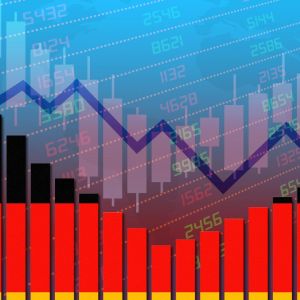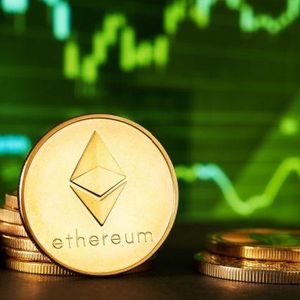Germany’s annual inflation reached 2.1% in May
4 min read
Data from the statistics office of Destatis showed that Germany’s annual inflation hit 2.1% in May, lower than its previous reading in April, which was 2.2%. The inflation data also came in slightly hotter than analyst estimates and is approaching the European Central Bank’s 2% target. Germany’s core inflation, which excludes volatile food and energy prices, dropped slightly from April’s 2.8% to 2.9% in May. The country’s services PMI decreased to 47.20 points this month, down from 49 points in April. Its energy prices also plummeted for the second month in a row, dropping by 4.6% in May. Germany’s CPI nears ECB’s 2% target GERMANY MAY HICP M/M RISES ABOVE FORECAST Preliminary Harmonized CPI rose 0.2% m/m in May, slightly above the 0.1% estimate. Indicates mild monthly inflation pressure, possibly driven by energy or services. GERMANY MAY HICP Y/Y AT 2.1%, TOPS ESTIMATE Harmonized CPI rose 2.1%… — Naeem Aslam (@NaeemAslam23) May 30, 2025 Germany’s consumer price index has been inching up towards the European Central Bank’s 2% target over recent months, giving a positive signal amid ongoing uncertainty about the economic outlook for Europe’s largest economy. Global trade tensions emanating from U.S. President Donald Trump’s tariffs have mired expectations for Germany’s financial future. Sebastian Becker, an economist at Deutsche Bank, argued last month that while the inflation rate closing in on the ECB’s 2% mark is good news for consumers at first glance, there are some less positive points about the data on a closer look. He noted that the slight decrease in the headline figures only took place due to lower energy and food costs. The European Central Bank is set to make its interest rate decision on June 5. According to LSEG data, traders last priced in an over 96% chance of a quarter-point interest rate reduction. Last month, the ECB cut its deposit facility rate by 25 basis points to 2.5%. Preliminary data also showed that the country’s economy expanded by 0.2% in the first quarter from the previous three-month period. The German Federal Statistics Office attributed the quarterly increase to the fact that both household final consumption expenditure and capital formation were higher than in the previous quarter. Carsten Brzeski, global head of macro at ING, argued that though the figures were positive, the quarterly increase was still far too small to end the country’s long-lasting stagnation. Last month, the German government cut its economic outlook to predict stagnation in 2025, with outgoing economy minister Robert Habeck saying that Trump’s trade policies and their impact on the country were the main factors behind the revision. “The economic outlook in Germany and the eurozone remains gloomy, and the risks for the economy are high due to the drastic and erratic tariff policy of the U.S. president. With the aim of strengthening domestic demand, the ECB should therefore, ease monetary policy further in the near future.” -Silke Tober, Economist at Macroeconomic Policy Institute (IMK). Germany is still forecasting stagnation in 2025, which could result in the longest period without growth in its post-war history. Trump’s trade policies could also damage economic growth in the European nation, given Germany’s status as an export-reliant country, though the potential impact of such duties remains unclear. Trump pushes EU’s tariff deadline to July TRUMP: I AGREED TO EXTEND EU 50% TARIFF DEADLINE TO JULY 9 Captain Caveman strikes again. Trump has folded on just about every tariff threat within 48 hours. 😆 — Alex Cole (@acnewsitics) May 26, 2025 Trump backed down from imposing steep levies on the European Union two days after threatening the bloc with 50% tariffs on May 25, the President agreed to extend his deadline for trade talks until July 9, from the June 1 deadline he set previously. Trump’s decision came after European Commission President Ursula von der Leyen told him the 47-nation bloc needed more time to reach a good deal. Leyen reportedly spoke to Trump via phone, saying the EU needed more time to agree and asking him to delay the trade duties until July. Trump had imposed a 90-day pause on his reciprocal tariffs on all countries worldwide on April 9. During a trip to Vietnam on Monday, French President Emmanuel Macron said he hoped Washington and Brussels could achieve a deal with the lowest tariffs possible. He also believes that the discussions are advancing, with EU commissioner for trade, Marcos Sefcovic expected to meet the U.S. trade representative, Jamieson Greer, on the sidelines of the Organisation for Economic Co-operation and Development meeting in Paris on Tuesday next week. KEY Difference Wire : the secret tool crypto projects use to get guaranteed media coverage

Source: Cryptopolitan



